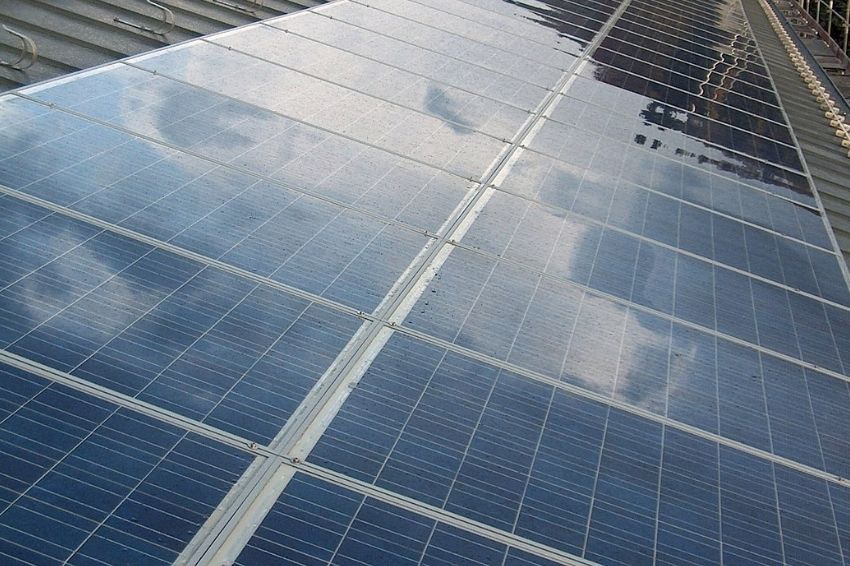After agreement between representatives from different sectors and state bodies on a new text for PL 5829/19, which aims to create the Legal Framework for DG (distributed generation), the solar energy market is on alert.
Since its completion, the draft text has been studied by several professionals in the photovoltaic sector. For ABSOLAR, consensus on the text should guarantee a vote in the Chamber of Deputies in the coming weeks and bring legal certainty and a reduction in electricity bills for Brazilian consumers.
For the executive president of ABSOLAR (Brazilian Photovoltaic Solar Energy Association), Rodrigo Sauaia, the agreement is an important step in the construction of this public policy that will strengthen the development of solar energy in Brazil.
“The federal government has committed to supporting and approving the consensus text in the National Congress and presidential sanction, to transform it into law this year. In fact, the rapporteur has already delivered the new text to the president of the Chamber, Arthur Lira, so that it can be voted on as soon as possible”, he comments.
One of the professionals' doubts involves the 18-month period that ANEEL (National Electric Energy Agency) will have to carry out the GD valuation study, which will have to be carried out 12 months after a possible publication of the Law in the Official Gazette of the Union.
“After 18 months, we will know what it will look like. During this period, there will be a shadow of investments for six months and this will be alleviated by the extension of the transition time for these DGs.
Lawyer Einar Tribuci, Tax Director at ABGD (Brazilian Association of Distributed Generation), explains that “from 2029 onwards the amount that can be compensated by energy consumers is not defined”.
“What has been established is that from 2029 onwards, consumer units will be billed based on the incidence of active electrical energy consumed, and all other tariff components not associated with the cost of energy, deducting all benefits provided to the electrical system by the plants. of GD”, he adds.
“It turns out that measuring these benefits is not easy and, therefore, the CNPE will have 6 months from the publication of the law to establish the guidelines, and ANEEL 18 months to calculate the valuation of the benefits based on these guidelines. This was a major complaint from the DG sector, as ANEEL was not transparent, or was mistaken, in the premises used to measure the benefits brought by DG”, he adds.
Gustavo Müller Martins, chairman of the Board of Directors and CEO of Renovigi Energia Solar, highlights that the discussion of Bill 5829 is a fundamental issue for the segment. “I positively evaluate the changes in the wording as they bring greater legal certainty to our partners and customers who choose this energy matrix. Still under discussion until its final approval, it is up to us as businesspeople and Brazilians to defend what is best not only for the segment, but for everyone”, he emphasizes.
Gustavo Tegon, co-founder of Esfera, evaluates the agreement reached and the new text presented as a positive movement. “Esfera is happy with the progress of the PL even if it was necessary to give up on some claims. This is something that was not in the sector's plans, but just the fact that the proposal has advanced in the Chamber allows us to maintain investments in Brazil and accelerate our growth”, he states.
“Genyx is very anxious and hopeful to see the light at the end of the tunnel of this long journey, which is the approval of the PL. Seeking a long-term understanding and legal security is essential to attract more and more investments with low-risk capital and make our sector, already so thriving, take off once and for all”, highlights Bruno Reis, commercial director at Genyx.
High demand x availability of equipment and labor
With the approval of the text, integrators estimate an increase in the photovoltaic market. However, they make reservations regarding the impact on the quality of the facilities and the supply of equipment.
“In the short term, the PL will bring a super urgency that we are not used to in the solar energy market. We are going to start to see a mad rush of project execution before the Law comes into effect at the same time that we are witnessing all the difficulties of our distribution partners in making products available for immediate delivery in Brazil”, assesses Ricardo Marques, CEO of Msols.
Marques also assesses that the market will suffer from the lack of qualified labor. “We don’t have a large number of qualified professionals to deliver these projects. Unfortunately, we will see many facilities that will not meet minimum safety and quality standards,” he adds.
For electrical engineer Ruy Carlos Tiedje, owner and director of the company R4 Renováveis, the future scenario for the solar sector is positive. “I understand that the approval of the PL brings legal certainty to contracts to the market. I think it’s very positive,” he says.
“I have been following the market and participating in it since Resolution 482 came into force. I see that the clarity on the transition rule and the rules on how the compensation will be done are positive because they will mean that there will be an explosion of projects in the first year, as the conditions are maintained in accordance with the current rules”, he adds.
“The market will have a lot of work to do in this first year and I don’t believe that only the first year will be good. I see that the next ten years of the distributed generation market will remain heated, being driven by photovoltaic sources. I analyze that the new rules, even those for transitions, will bring ten years of a very heated market for us. Especially because with clear rules new business models will emerge in the area of distributed generation”, he concludes.
Battery market
Another point that the CEO of MSols highlights in the text concerns the battery segment. “With this transitional effect of six, seven and eight years, I believe there will be advances in the storage segment. So, manufacturers and distributors will have to reinvent themselves. Only the large integrators will remain in the market”, adds Marques.

















